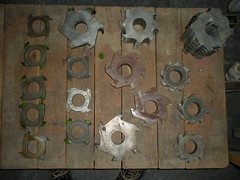As long as you have sufficient bone density in the area surrounding the teeth you want to replace with dental implants, you are an appropriate candidate for dental implant surgery. Even if you're missing the majority of your teeth, dental implants will work for you > But most of the people who decides to get dental implants want them as replacements for their uncomfortable and insecure "bridges and partial dentures.

The chances of you having successful dental implant surgery will usually depend on which natural teeth the implants are replacing, and how much those teeth are involved in biting and chewing your. Dental implants replace in the front teeth in either the loweror upper jaw are reported to have at least a 90% success rate. But when the back molars which do most of the chewing are replaced the success rate can drop to as low as 85%. What can cause dental implants to fail?
What Can Go Wrong
Tooth Implant Insurance
If the titanium or ceramic used in the implants is flawed, they can break. If the ceramic tooth replacement does not fit the titanium rod securely, it can separate. Those would be mechanical reasons for a dental implant to fail, but they are not as common as medical reasons.
If there is insufficient bone tissue surrounding the site of the dental implants, they can fail and simply fall out. If bacteria were present in the jawbone or gum tissue at the implant siteprior to the surgery, they can be released when the rod is implanted, spreading to the surrounding bone and gum and causing an infection which requires the removal of the implant. Such infections may even spread to the sinuses, so it is important that they be taken care of as soon as possible.
Dental implants, however, are successful in between ninety and ninety-five percent of the time, and having a successful dental implant will mean a permanent fix to the problem of a diseased or worn out tooth.
The Biggest Appeal Of Dental Implants
But the aspect of good dental implants which appeals to most people is that it is virtually impossible for anyone to distinguish between their> implants and their natural teeth. Having Dental
dental implants to replace missing or diseased teeth will restore your smile and give you the confidence to face other people and enjoy your social life without worrying about wobbly dentures.
The Cost Of Dental Implants
Dental Implants-The Bad and The Good




